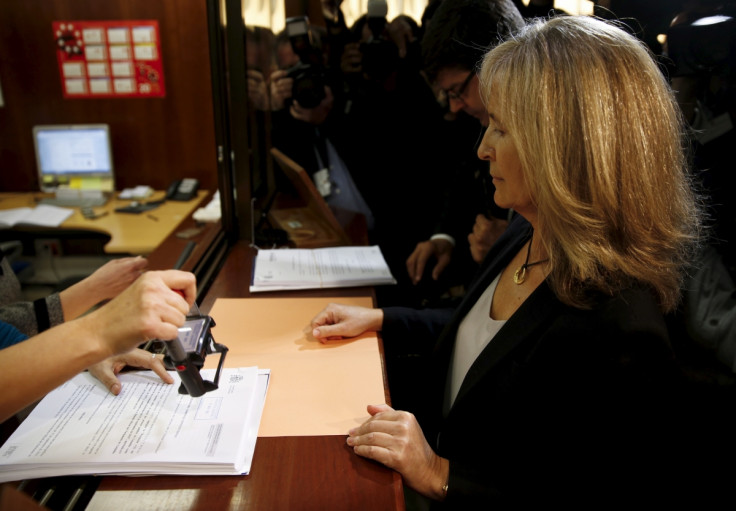Spanish Constitutional Court suspends Catalan's secession process at request of central government

The Spanish central government has turned to the courts to stop Catalonia from pushing ahead with its plans for secession. The Constitutional Court has given Madrid a temporary respite by spending a resolution by the Catalonia's parliament that declared the start of a seccession process.
The court also agreed with the central government's request that it "personally" notified the 21 Catalan leaders who promoted the resolution of the consequences they could face if they chose to ignore the court's ruling. The 21 included Catalonia's outgoing president Artur Mas, his cabinet, and the president of the regional assembly, Carme Forcadell.
The Catalonia's regional parliament on Monday passed a resolution calling on the regional assembly to start work on legislation within 30 days to create a separate social security system and treasury. The view is towards achieving independence in 18 months. The resolution declares that the Catalonia parliament is "sovereign" and not subject to decisions made by Spanish institutions, including the Constitutional Court.
The resolution was backed by the Mas' Together for Yes coalition and the smaller far-left separatist CUP party, which together won a majority in the Catalan parliament in the 27 September regional election. Despite their win, the central government was quick to point out that they failed to win a majority of all votes cast.
Spain's Prime Minister Mariano Rajoy accused the promoters of the Catalan resolution of wanting to "put an end to democracy and the state of law, subjugate the rights and freedoms of all citizens and break up the unity of Spain. I will not allow it and I have the backing of the majority of Spaniards," he told a news conference following an emergency cabinet meeting.
Rajoy earlier on Wednesday (11 November) met with the head of the main opposition Socialists, Petro Sanchez, who backed the prime minister in his defence of the constitution. He also reiterated his call for a reform of the constitution to make Spain a federal state which would meet Catalonia's demands for more anatomy. Spain will hold its general elections on 20 December.
Catalonia regional government to ignore court decision
The regional government however has vowed to push ahead with its secession process despite the court's decision. "The political will of the government of Catalonia is to go ahead with the content of the resolution," said Neus Munte, the vice president of the Catalan government.
A judicial source told AFP: "If they disobey the suspension they could be charged with the crime of disobedience." Catalonia, which has a population of 7.5 million people, has its own language and accounts for a fifth of Spain's economic output. Although it already enjoys a large degree of autonomy in education, health and policing, it is seeking for more freedom on taxation.
© Copyright IBTimes 2024. All rights reserved.






